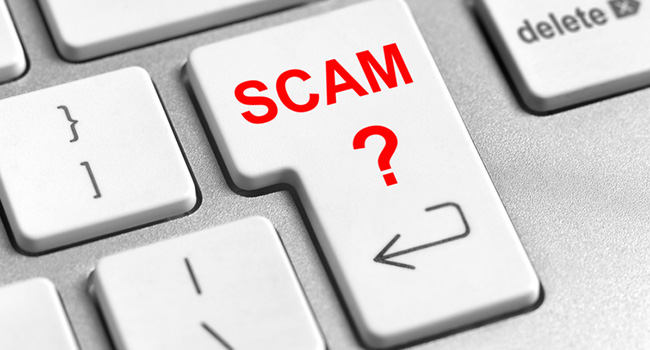What Fraud Scams to Look Out For
Keep Your Account Safe

The security of your account is a top priority at Wescom. We use the latest technology to safeguard your
accounts, which are then monitored 24 hours a day, seven days a week by a team of security experts. But now,
fraudsters are finding new ways to contact you and gain access to your account information. These are the
top trending fraud scams to look out for.
- Zelle® and Payment Scams. Posing as a utility company, well-known business, family or
friend, government agency, or even a Wescom employee, the scammer will ask you to immediately send them
money using Zelle®. This is an attempt to convince you that providing immediate, direct
payment is necessary to avoid a service delay. Only use Zelle® to send and receive money
from people you know and trust.1
- Charity Scams. Fraudsters will pretend to be a non-profit organization representative to trick you into
sending them money.
- Pet Scams. Fraudsters will use classified advertisement websites to request funds upfront for a pet,
vaccine, or crate and shipping costs.
- PC Software Scams. Fraudsters are attempting to contact you and convince you that providing immediate,
direct payment — as well as online banking credentials — is necessary to upgrade your
computer's software.
- Investment Scams. These types of scams involve promises of big payouts, quick money, or guaranteed
returns. Watch out for any investment opportunities that promise a high return with little or no risk.
If it seems too good to be true, it probably is.
- Cryptocurrency Scams. If someone asks you to pay by cryptocurrency, it's a scam. The worst part: if you
pay, there's almost no way to get that money back. Never use Zelle® to purchase cryptocurrency.
- Merchandise Scams. Fraudsters accept payment for an item and send you nothing in return. Remember,
Zelle® is intended to use with friends and family; there is no purchase protection plan.
- Job Scams. Posing as employers and recruiters, scammers will reach out to you with a job offer that
requires you to send them money or personal information, such as your Social Security number or bank
account information.
- Property Scams. Scammers will list properties that don't actually exist to trick borrowers into sending
them money.
- Romance Scams. A scammer will create a fake identity online to build a relationship with another online
user in an attempt to steal their money and personal information.
- Social Media Scams. Fraudsters will send you a direct message through a social media app and pretend to
be a friend or family member and ask you to send them money.
- Amazon Scams. Posing as an Amazon employee, scammers will call to report suspicious activity on your
account in an attempt to gain your passwords and account information.
- Phone and Text Message Scams. Fraudsters are using Wescom's phone number to trick you into providing
them with information so they may gain access your account. Know that Wescom will never call or text you
to request passwords, your account number, debit card number, credit card number, PINs, full Social
Security number, online banking credentials, or any one-time verification codes — even if the
caller or sender says (or looks like) they're from Wescom.
If you receive a call from a phone number that looks like it's from Wescom and are unsure of the
identity of a person claiming to be a Wescom team member, hang up and call us back at
1-888-4WESCOM (1-888-493-7266).
-
Skimming. Scammers can attach card-skimming devices to card readers at ATMs or other payment terminals
such as gas station pumps. These skimming devices can collect card information and PINs when a credit or
debit card is swiped or inserted.
Whenever possible, tap your card to make your transaction if you see the contactless logo. For added
convenience, add your card to your mobile wallet and tap to pay. And always check an ATM or card reader
before inserting your card.
We encourage you to sign up for Wescom's free Account Alerts to notify you via text or email about activity
on your account. To report unknown activity or fraud or learn more about payment scams and what you can do
to help protect yourself, visit wescom.org/security-center or call us at 1-888-4WESCOM (1-888-493-7266).
1 U.S. checking or savings account required to use Zelle®. Transactions between enrolled consumers typically occur in minutes. Zelle® and the Zelle® related marks are wholly owned by Early Warning Services, LLC and are used herein under license.

